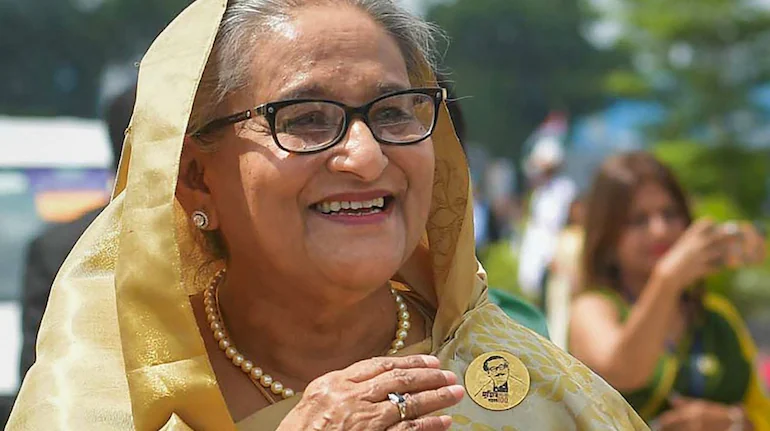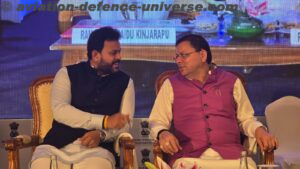New Delhi. 05 August 2024. Today was a day of sad but developing events in the Indian sub-continent and the country which was the cynosure of global eyes for all the wrong reasons is Bangladesh whose Prime Minister Sheikh Hasina was compelled to resign amidst violent protests that claimed over 300 lives. Fleeing her home country, she sought refuge in India while applying for asylum in the United Kingdom. The coup, driven by public unrest over government job quotas and economic hardships, has plunged Bangladesh into political turmoil and raised significant concerns for regional stability.
On official television, General Waker-Uz-Zaman announced her resignation and said, “The nation has suffered greatly. It’s time to put an end to the violence because it has hurt the economy and killed a lot of people. After my speech, maybe, things will get better.”
After resigning as Prime Minister, Sheikh Hasina left Bangladesh and touched down at the Hindon Airforce Base, which is close to Delhi, where she was met by Air Officer Commanding (AOC) Sanjay Chopra at the air base. Sheikh Hasina was greeted by National Security Advisor Ajit Doval at the Hindon air base. Notably, during the Awami League’s control over Bangladesh, India maintained cordial relations with Sheikh Hasina and has always regarded her as a friend. She arrived in a C-130J of the Bangladesh Airforce. External Affairs Minister S Jaishankar briefed Prime Minister Narendra Modi on the situation in Bangladesh at Parliament House in the presence of NSA Ajit Doval, who instantly reached Hindon Airforce Base to meet the Bangladeshi ousted Prime Minister.
Along the border between Bangladesh and India, the BSF has declared a high alert. Train services have been suspended for both freight and passenger trains heading towards the border regions of Bangladesh. On July 16, demonstrations against a government employment quota system turned violent as student activists clashed with security personnel and pro-government demonstrators. This led to the use of tear gas, rubber bullets and a curfew with a shoot-on-sight order by the authorities. They also turned off their cell data and the internet. The nonviolent demonstrations against the quota system started in June. But subsequently, the arguments turned violent, killing hundreds of people. Last week, there was a small respite before the violent protests resumed. In the last two days, almost 100 people passed away
Sajeeb Wazed Joy, Sheikh Hasina’s US-based son, had pleaded with the security services to preserve the government before to her overthrow. “It is your responsibility to protect the constitution, our people, and our nation. It means that you have a duty to ensure that no unelected administration has power for even a brief period of time,” he posted on social media.
The main opposition party, the Bangladesh Nationalist Party (BNP), of former premier Khaleda Zia and her allies boycotted the 12th general election in January, which resulted in Hasina being elected for a record-breaking fourth consecutive term and fifth overall. And this coup results into the end of her 15 years of rule.
Shortly after Sheikh Hasina resigned, President Mohammed Shahabuddin issued a decree freeing all students imprisoned during the recent demonstrations against a government job quota system as well as former prime minister Khaleda Zia.
Currently the army has taken over but it was the prominent organiser of the student uprisings in Bangladesh, Muhammad Yunus, winner of the Nobel Peace Prize, who is the pick to lead a transitional administration. President Shahabuddin announced that he had presided over a gathering of political delegates and army chief. He stated there would be new elections, the formation of an interim administration, and the lifting of the nationwide curfew.



























































































































